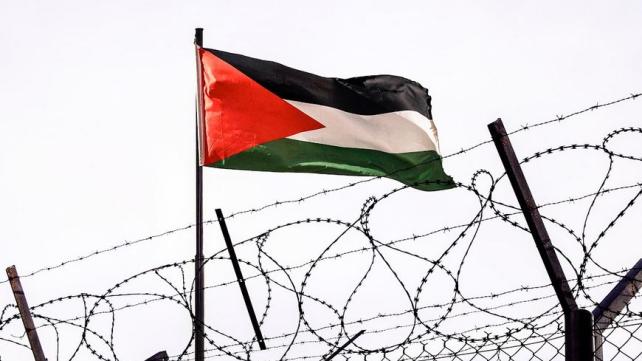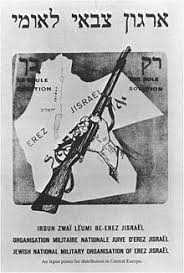
This article will look at the aftermath of the Nakba until the present and present an analysis of how the U.S., Arab regimes, and international institutions such as the U.N. facilitate the Zionist entity's continued genocide. Since the Nakba, the Palestinian people have endured relentless hardships, including killing, torture, imprisonment, loss of land, restricted movement, and daily violence.
The Expansion of Israeli Territory
Following the Nakba, Israel’s territorial expansion has continued unabated. The 1967 Six-Day War saw Israel occupying the West Bank, Gaza Strip, and East Jerusalem. These territories remain under military occupation, and Israel's settlement expansion continues. Large portions of Palestinian land have been confiscated for the construction of illegal Israeli settlements, with Palestinians facing evictions, home demolitions, and land seizures.1 The expansion of these settlements is characterized by emotional pain and financial burdens, with houses being demolished sometimes by the Palestinians themselves under the threat of guns.2 Meanwhile, Palestinians continue to live in large refugee camps that have been there since 1948.
3
The West Bank: Living Under Occupation
In the West Bank, Israeli military presence is felt everywhere, from checkpoints to nightly raids on homes. The occupation controls almost every aspect of life for Palestinians, from movement to economic opportunities. Land confiscations and the burning of olive trees have continued for 76 years.4 Water resources are often diverted for Israeli settlements, while electricity for Palestinians is cut off for hours and sometimes days. Even before October 7, 2023, Israeli forces would storm refugee camps in the West Bank, destroy their infrastructure, dig up roads with huge machines, destroying water, electricity, and even hospitals.
5
This is not Gaza. It is Jenin in the West Bank after ten days of Israeli aggression.
Al-Quds under occupation
Al-Quds holds a special place in the hearts of Muslims around the world. In 1967, Israel occupied East Jerusalem, including Al-Aqsa Mosque, Islam's third holiest site. Over the years, Israel has systematically worked to reshape the city by expanding Jewish settlements and implementing policies aimed at reducing the Palestinian population in the city. The most significant change came in 2018 when the U.S. recognized Jerusalem as Israel's capital, further consolidating its control over the city, displacing Palestinian families from their homes and tightening restrictions on access to the holy sites.
The Wall and Checkpoints: Fragmenting Lives
The construction of the Israeli separation wall in 2002 created physical and psychological barriers between Palestinians and their land.6 The wall snakes through the West Bank, cutting off villages, dividing families, and separating Palestinians from their farms, schools, and workplaces. In some areas, Palestinians are required to pass through checkpoints to reach their daily destinations. These checkpoints, many staffed by heavily armed Israeli soldiers, are notorious for long delays, humiliation, and violence. This system of control fragments Palestinian communities, limiting their freedom of movement and access to basic services.7
8
The wall that divides families
Armed Settlers and Escalating Violence
The presence of Israeli settlers in the West Bank has become an increasing source of tension. Attacks on Palestinian homes, farms, and olive groves have escalated, leading to a climate of fear and instability. Palestinians in the West Bank are constantly threatened by settler violence, with little recourse for justice, as the Israeli legal system often protects settlers while criminalizing Palestinian resistance.
The Siege on Gaza: Life Under Blockade
Since 2007, the Gaza Strip has been under a strict blockade imposed by Israel, with Egypt controlling its southern border. This siege has turned Gaza into what many describe as an "open-air prison," severely limiting the movement of goods and people. With nearly two million Palestinians crammed into a small area, the living conditions in Gaza have deteriorated drastically. Frequent military assaults, power outages, a devastated economy, and limited access to clean water and healthcare have left the people of Gaza in dire straits. The youth in Gaza, many of whom have never left the Strip, are growing up in an environment where opportunities for education, employment, and everyday life are scarce.
According to The Lancet, in July, over 186,000 Palestinians were killed in the Genocide.9 Despite the unimaginable hardships, the people of Gaza continue to persevere, with Iman and Taqwa having been abandoned by the world.
See Timeline: Israel’s attacks on Gaza since 2005 | Israel-Palestine conflict News | Al Jazeera
Israel's attacks on Gaza since 200710
The Role of the U.S. in the Genocide
The U.S. has supplied Israel with about $310 billion (adjusted for inflation) in total economic and military assistance, the largest cumulative recipient of U.S. foreign aid since its founding.11 Since October 7, the U.S. has reportedly made more than one hundred military aid transfers to Israel valued at more than $18 billion. It is only through the support of the U.S. that Israel can unleash terror, dropping 2000 lb. bombs on tents, evaporating 20 bodies on impact, killing 20 more that were recovered, and leaving 60 injured on September 10, 2024.12
See U.S. Aid for Israel Charts13
Rulers of Muslim Countries
Many Muslim rulers across the Middle East and surrounding regions have not only remained passive in response to the ongoing struggles in Palestine but have aligned themselves with the interests of America and Israel. Countries such as Jordan, the United Arab Emirates, Turkey, Egypt, and Saudi Arabia actively support Israel by providing essential supplies and resources, including materials for its war industry. Meanwhile, the Palestinian people, especially in Gaza, are deprived of vital resources needed for their survival and resistance. These governments distract their populations from the atrocities happening in Gaza by focusing on internal issues, such as parliamentary elections, which often result in maintaining the same colonialist influence and control. The inaction and complicity of these rulers exacerbate the suffering of Palestinians and undermine the unity of the Ummah in standing against the oppression faced by their fellow Muslims in the Blessed Land.
The Unveiling of Zionism's True Agenda
For 76 years, the world disregarded the uncomfortable truth that the Zionist state is an expansionist settler original state. The map shows both Mandatory Palestine and the Emirate of Transjordan, which the Irgun claimed in its entirety for a future Jewish state.
The 1931 propaganda poster of the Irgun shows Israel’s borders, including the whole of Palestine, Jordan, and parts of Saudi Arabia, which the Irgun claimed in its entirety for a future Jewish state.14 We can see that vision has slowly become a reality as the Zionists occupy more and more land and wage war on neighboring countries.

A Struggle for Liberation and Justice
The life of Palestinians since the Nakba has been one of ongoing struggle, resistance, and survival in the face of oppression. The expansion of Israeli territory, the siege on Gaza, the changing face of Jerusalem, the construction of walls and checkpoints, and the rise of settler violence paint a picture of immense hardship.
The Palestinian cause remains a vital issue for Muslims around the world, as it represents a fight for the blessed land and the first qibla, Al Aqsa, and is necessary for the protection of Muslim men, women, and children, a duty prescribed by Allah.
So, returning the occupied Muslim land to the Muslims and repelling the aggression is clearly explained in the Quran, the Sunnah of Prophet Muhammad, peace and blessings be upon him, and the unanimous consensus of his companions or ijma, may Allah be pleased with them.
“So, if anyone attacks you, retaliate in the same manner. But be mindful of Allah and know that Allah is with those mindful of Him.”
(Surah al-Baqarah, 2:194)
Today, Muslims around the world yearn for the leadership of rulers such as Sultan Abdul Hamid II, who refused to surrender Palestine for any price. We yearn for the removal of the corrupt regimes that surround Palestine and have become the first line of defence for the Zionist occupiers rather than the protectors of the Muslims. As Muslims, we must raise awareness, offer support, and stand in solidarity with our Palestinian brothers and sisters as they continue their courageous struggle.
May Allah ease the suffering of the Palestinian people and bring peace and justice to the land of Palestine. Ameen.
End Notes
1 Palestinian Homes Are Being Demolished in Jerusalem
2 Israelis wants to turn Sheikh Jarrah into a settlement
3 Israel-Palestine conflict: A brief history in maps and charts
4 Illegal Israeli settlers damage, burn Palestinian olive trees
5 Jenin refugees: displaced yesterday, but fighting back today and tomorrow
6 Israel's West Bank checkpoints, from the eyes of Palestinian workers
7 Occupied West Bank checkpoints: Israel sets up hundreds of military roadblocks
8 In Pictures: Israel’s illegal separation wall still divides | Conflict | Al Jazeera
9 Counting the dead in Gaza: difficult but essential - The Lancet
10 Timeline: Israel’s attacks on Gaza since 2005 | Israel-Palestine conflict News | Al Jazeera
11 U.S. Aid to Israel in Four Charts | Council on Foreign Relations
12 ‘Like a nightmare, but real’: Surviving Israel’s attack on Gaza’s al-Mawasi
13 U.S. Aid to Israel in Four Charts | Council on Foreign Relations
Uzma Ahmed holds an MA in International Relations from Queen Mary University of London. She has served as an educational consultant, primary school principal, curriculum developer, researcher in Islamic education, and teacher trainer for schools around the world. She actively contributes to the community by conducting courses on the Quran, Sirah, Islamic history, and personal development, and she is a public speaker on contemporary issues in the Muslim world. She has authored primary-level English textbooks, reading books, and 5D Thinking science workbooks. She contributes to curriculum development at the Islamic Curriculum Initiative. Currently, she is the Director of Education and Training at the Institute of Integrated Knowledge.



Add new comment